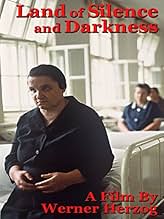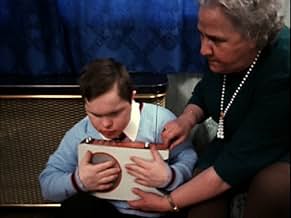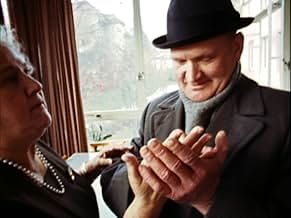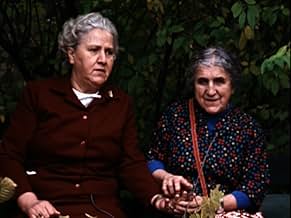Land of Silence and Darkness
Through examining Fini Straubinger, an old woman who has been deaf and blind since adolescence, and her work on behalf of other deaf and blind people, this film shows how the deaf and blind ... Read allThrough examining Fini Straubinger, an old woman who has been deaf and blind since adolescence, and her work on behalf of other deaf and blind people, this film shows how the deaf and blind struggle to understand and accept a world from which they are almost wholly isolated.Through examining Fini Straubinger, an old woman who has been deaf and blind since adolescence, and her work on behalf of other deaf and blind people, this film shows how the deaf and blind struggle to understand and accept a world from which they are almost wholly isolated.
- Awards
- 1 win & 1 nomination total
- Director
- Writer
- All cast & crew
- Production, box office & more at IMDbPro
Featured reviews
Haunting
Locked in Without Vision or Sound...
An exhilarating answer to the question, Who is my brother?
Heavy insight into the land of nothingness
The text on the back cover explains the movie very well:
"Some who live in this land have learned to speak, though they communicate with each other by touch language: what they say comes from the most profound depths of human experience, and is often startingly beautiful and exiting. This is not a depressing movie at all. Neither is it a movie for voyeurs of the grotesque. As Anita Earle writes, 'It is, rather, a testament from another plane of existence'"
At some points in this movie I laughed. The camera often stays very long on lonely, depressing people who spend their days either sitting or lying down. But it wasn't meant to be comedy, it is a way for me to step back. It is a very 'close' picture, it really gets to you. You're thinking "Jesus", and you want to react. And still, it is an artwork.
Utterfly affecting
It's a documentary that explores the world of deafblind people living in Germany, controlled by a campaigning woman, Fini Straubinger, who makes it her business to travel the country and help those in need. What transpires is a travelogue fraught with unforgettable moments; moments that I don't mind admitting had me in tears on more than one occasion. The sequence with a 22 year old man who's never had any education or even contact with the outside world - he can't even walk - is the film's moving highlight.
Herzog lets his story speak for himself, although he makes some strong choices as director. Visits to a cactus house and a zoo are utterly engrossing and the addition of some classic music to the soundtrack really helps to tug at the heartstrings. Not an easy film to watch then, but one which is nevertheless thoroughly compelling.
Did you know
- ConnectionsFeatured in I Am My Films (1978)
- How long is Land of Silence and Darkness?Powered by Alexa
Details
- Release date
- Country of origin
- Language
- Also known as
- Land des Schweigens und der Dunkelheit
- Filming locations
- Production companies
- See more company credits at IMDbPro
- Runtime
- 1h 25m(85 min)
- Sound mix
- Aspect ratio
- 1.37 : 1


























